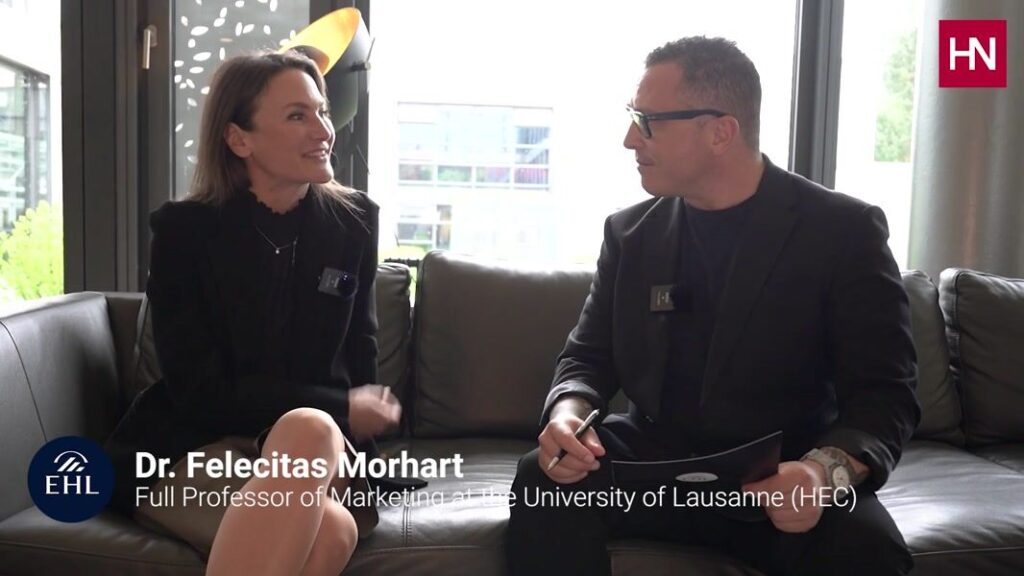During the EHL Open Innovation Summit In Lausanne we had the chance to sit down and talk with Dr. Felicitas MorhartFull Professor at the Department of Marketing HEC LausanneThe field of longevity has begun to transform luxury hospitality. Our conversation covered the intersection of biotech wellbeing, self-optimization driven by status, and the changing role of luxury in a world increasingly geared towards optimization.
What technology or innovation will you say most significantly reshape travel and hospitality over the next five to ten years?
The most common topic of conversation is probably artificial intelligence. However, if we look at the real potential in hospitality then it’s important to discuss longevity. The possibilities include epigenetics as well biotech hacking and nutrition that increases functionality. It is fascinating and yes, it can be a little scary. As people live longer and are healthier, the narrative is growing that taking care your body has become a status sign. The industry has a huge opportunity.
What will be main impacts of longevity in hospitality industry?
It is possible to make a fortune in luxury travel, and especially high-end. The average person is living longer and many retirees are well-off financially. Being healthy has become a status symbol. Now we see celebrities visiting longevity clinics rather than hiding away in rehab. Once something becomes a symbol of status, it becomes an industry. The need to place yourself in the social ladder is very human, and health and longevity have become the new benchmarks.
Is there any difference between the terms self-optimization and self improvement? And how does that affect the hospitality industry’s approach towards wellness?
It is a very important distinction. Self-optimization is an egoistic approach to betterment. It’s about tracking yourself and beating your numbers. Comparing oxygen levels in blood is also part of it. The original concept of being a more positive person was to be a better human on the planet. When longevity becomes a status symbol for the wealthy, it is no longer about the ecosystem, but rather the ego. If someone is injecting their son’s life blood to remain young, then we have crossed the line. It’s not about being a better human. This is a game of status.
Does luxury always lead to excess and ego?
This is a dilemma I personally face. It is possible, I think. If we bring the definition of luxury down to its essence—beauty, harmony, aesthetic pleasure—there is nothing wrong with that. This kind of luxury can be very compatible with spiritual development and aligning with nature. This definition of luxury can make it a guardian for humanity.
True luxury is not efficient. Time, attention, presence and personal care are all important. AI is now about efficiency. Luxury, however, is not efficient. Luxury is human. It is personal and magical. It is personal and magical. Until a few years ago, many people thought that pursuing luxury was superficial. I think that in the future luxury will be humane and what ultimately keeps us humans.


